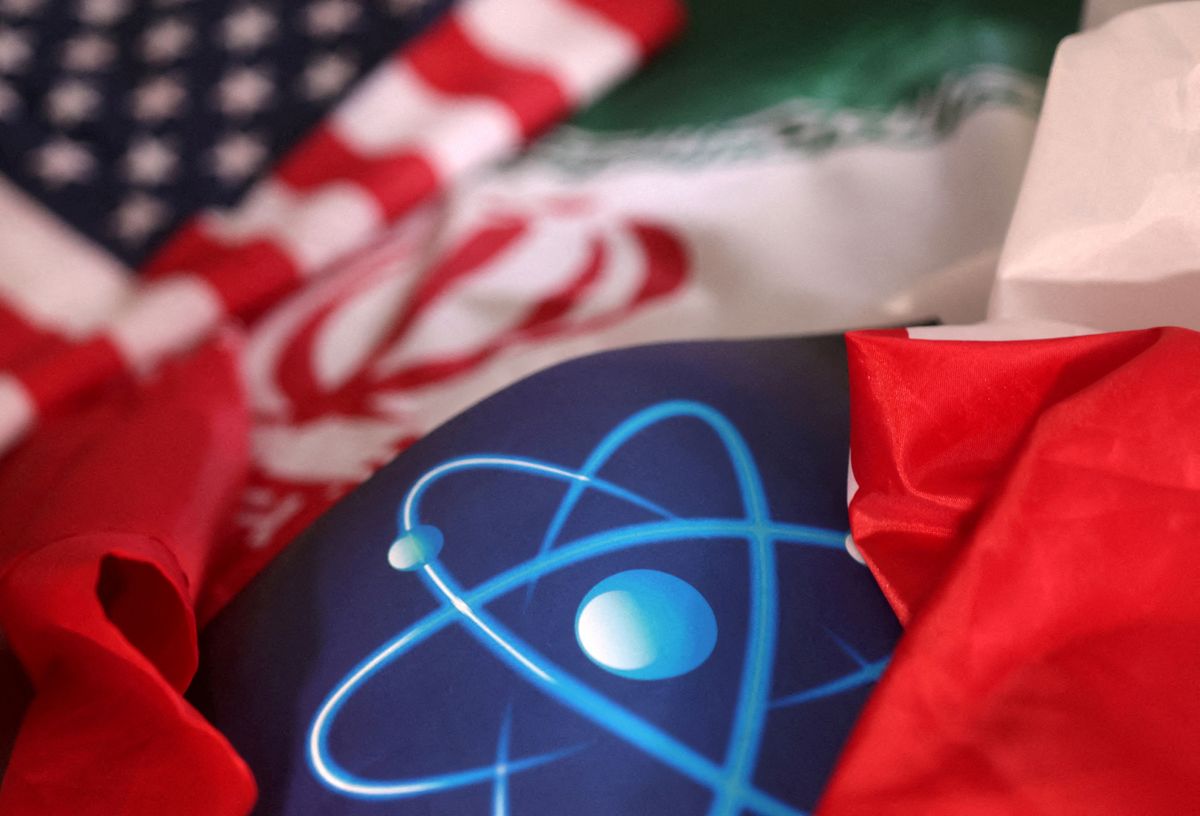Could US-Iran talks lead to a return to the table for the Iran Nuclear Deal?
In recent years, talks to restore the 2015 nuclear deal with Iran resumed, but they’ve repeatedly been stalled.

A few minutes every morning is all you need.
Stay up to date on the world's Headlines and Human Stories. It's fun, it's factual, it's fluff-free.
The backstory: In 2015, a few countries put together the Iran Nuclear Deal formally known as the Joint Comprehensive Plan of Action (JCPOA), which put limits on Iran’s nuclear program while also keeping Iran safe from many sanctions. The whole idea was to prevent Iran from creating its own nuclear weapon and to keep military peace between it and the US. It worked out for a while, but then the US pulled out of the deal in 2018 under the Trump administration and hit the country with a round of fresh sanctions.
Then, tensions between the US and Tehran hit a peak in early 2020 when the US killed Iran’s most powerful military commander, Qasem Soleimani, and others in an airstrike in Baghdad. Since then, Iran has been building up highly enriched uranium and helping supply Russia with weapons used to fight Ukraine, specifically drones.
More recently: In recent years, talks to restore the 2015 nuclear deal with Iran resumed, but they’ve repeatedly been stalled because the sides keep reaching an impasse over the finer details. The US and Europe have been looking for ways to slow down Iran’s nuclear program, piling on sanctions over the past few years. There have been rumors that the US and Iran have been talking about a new “interim deal” to keep Iran from continuing to develop its nuclear program in return for fewer Western sanctions. Last Thursday, both countries denied these reports, calling them false and misleading.
The development: Even though both countries denied these rumors last week, it does look like some indirect talks are happening between the two. But, both sides say the talks aren’t about an interim nuclear deal but are concerning other matters. Talks in Oman and on the sidelines of the UN have so far been on the US agreeing to unfreeze sanctioned payments owed to Iran, though the money can be used only for humanitarian purposes, in exchange for Iran freeing some US prisoners. One insider also said talks on Iran voluntarily limiting its uranium enrichment and being more cooperative with international monitors in exchange for being able to ship more crude are on the table.
The goal seems to be to reach an informal, unwritten agreement that would keep tensions between the US and Iran from escalating. This kind of agreement could potentially make space for better diplomacy between the two countries. But some insiders have said the talks would lead to an “informal understanding on Iran’s nuclear program.”
Key comments:
“There is some diplomacy in play,” said Mark Fitzpatrick, a former US State Department official, who met with diplomats in the International Atomic Energy Agency this week. “There will at least be a cease-fire put in place, they won’t escalate more.”
“None of this is aimed at reaching a groundbreaking agreement,” said Ali Vaez, the Iran director for the International Crisis Group. The goal is to “put a lid on any activity that basically crosses a red line or puts either party in a position to retaliate in a way that destabilizes the status quo.”




Comments ()